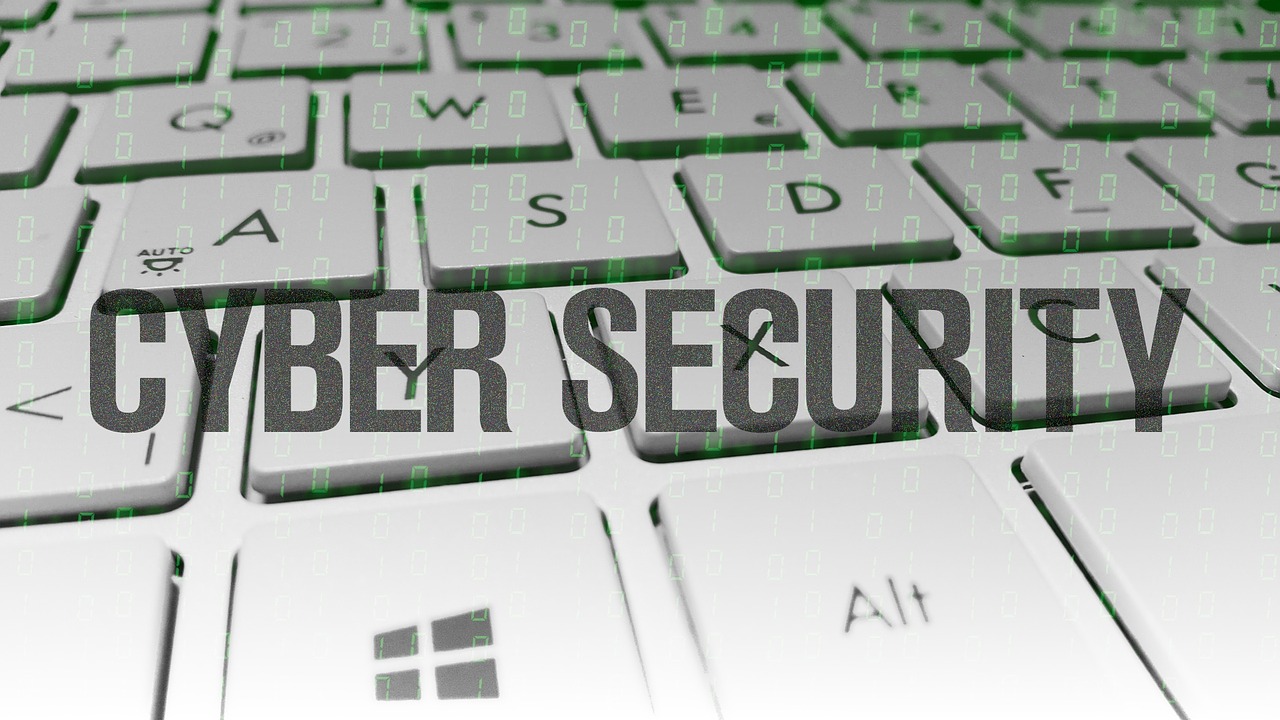In this post, we will answer why cybersecurity in financial services is important.
Not so long ago, we only had to worry about physical theft. But then came computer fraud, and now we are vulnerable to multiple threats.
Digital innovation in the financial industry helps financial service providers meet customer demands and poses risks by increasing the attack surface of new entry points that cybercriminals can easily exploit.
Therefore, there should be a much greater emphasis on examining the importance of cybersecurity in financial services.
A secure digital transformation requires the financial industry to prioritize cyber hygiene. Essentially, hygiene practices equip financial service providers with the right tools to detect and remediate ecosystem vulnerabilities. The industry can then meet the demand for innovation without compromising security.
Table of Contents
Cyber Security Threats to the Financial Sector
Given our globalized world, where everything is interconnected, a cyberattack against the largest U.S. bank can significantly affect the global financial system.
Here are the top trends in the category of cyberattacks on financial institutions.
- Ransomware— An attack on organizations and businesses, where they are pressured to pay a fee to restore regular access and run their daily operations.
- Distributed Denial-of-Service (DDoS)—These attacks overload a website’s traffic flow, causing it to become inoperable.
- Web Applications—Misconfiguration within such applications leaves an organization vulnerable to cyberattacks.
- Phishing is one of the most prevalent cybersecurity threats to financial institutions, which involves tricking employees into disclosing sensitive information or downloading malware.
Cybersecurity Challenges in Financial Services
The following are a few of the biggest challenges affecting cybersecurity in financial services, financial technology (Fintech) enterprises, and startups.
- Increased Data—Protecting information and data generated from mobile and internet banking solutions is one of the biggest cybersecurity and privacy challenges. There is a need to work with the right data protection service providers, such as Triada Cybersecurity, to enable active protection against modern cyber threats.
- Cloud-based Security Risks—Cloud services power digital transformation by providing speed, security, scalability, and other benefits. However, using cheap and inefficient cloud services can compromise cybersecurity in the banking sector.
- Data Sharing—The collaboration between digital financial enterprises and conventional organizations makes it easier for consumers to get better products and services at low prices. Businesses in the Fintech industry need to capitalize on modern technology and processes to encrypt data throughout the process to ensure protection from cyberattacks.
- Cross-platform Malware Infection—Hackers develop malware that infects one platform, which propagates into other connected platforms.
- Digital identity management—Stolen identities make it easy for attackers to access and steal vast financial resources from personal accounts. Financial services must use patented and reliable disaster recovery and data backup services powered by Artificial Intelligence (AI) to prevent this occurrence.
Using AI-Driven Solutions to Maintain Data Security
A self-learning, AI-based cybersecurity system should solve the abovementioned problems and challenges.
Below are essential tips for operationalizing AI and maintaining security solutions to keep cyberattacks at bay!
Consider the goals and risks
Before implementing AI into your cybersecurity operations, establish the risks, expectations, and success criteria.
AI has a powerful potential to offer advanced detection capabilities based on cybersecurity trends in financial services and your unique known and unknown threats.
READ ALSO: The Intersection of Cybersecurity and AI: Exploring Challenges and Opportunities
Have a strong foundation
AI can augment your current cybersecurity tools beyond the traditional approaches for rapid prioritization and validation of threats. Network basics covered by AI include:
- Visibility—This allows accounting for all assets within a network
- Governance—AI is most effective when it can link multiple data feeds into a single truth source using a single common data model
- Storage and processing—Decoupling the storage and computation layers helps AI systems run freely without slowing down the real-time identification of threats
- Workflow—Financial organizations should have defined and organized processes and workflows that extend beyond their cybersecurity financial system teams
Complement human effort
AI supports analysts by reducing errors, speeding up the analysis, and automating labor-intensive tasks. To manage, mobilize, and maximize the human element of AI in your cybersecurity:
- Identify tasks for automating
- Plan to evolve cyber roles like testing and evaluation, systems administration, and infrastructure support.
- Introduce emerging roles into your business, including employees who maintain Machine Learning (ML) models and cyber data scientists.
- Identify the education process your organization has in place to inform employees about the function of AI in your institution through webinars, online tutorials, and podcasts.
Focus on use
This requires breaking down the workflow to understand better where AI is needed. Accounting for all unmonitored and monitored data sources is also critical for applying AI in your organization. Identification of individual use cases for automation helps improve the speed of detection and response.
Automate for fast Return on Investment (ROI)
Automating simple processes will reduce execution times and free up staff time, creating better efficiency and outcomes. Companies with an already developed AI talent base, operational structures, and resources can consider creating autonomous cybersecurity financial services in 2020 based on need and possible future threats.
Strengthen Your Defenses with Good Financial System Cybersecurity
In the current cybersecurity environment, criminals often use increasingly sophisticated cyberattacks against financial institutions like yours. The reactive, traditional measures are no longer sufficient.
Moving forward, using the most effective solutions for cybersecurity in financial services can help eradicate these challenges, alleviate your worries, and win customer trust.
The time to act is now!
Cybersecurity sounds difficult to understand, and it’s even more challenging to stay on top of its applications and development.
That is why SecureBlitz Media sorts through the noise, lets you know what is important and recommends which actions to take. Visit our website and find out about the latest cybercrimes today!
Note: This was initially published in September 2020, but has been updated for freshness and accuracy.
SUGGESTED READINGS
- Top Cybersecurity Trends Every Web Developer Should Expect
- 6 Most Secure Email Service Providers
- Complete DeleteMe Review [100% WORKING]
- 7 Things You Need To Know About Cybersecurity And Payday Loans (Infographics)
- AI Revolution: Protecting Your Cyber Future
- The Role of Artificial Intelligence in Cybersecurity
- The Intersection of AI and Privacy: Safeguarding Personal Information in the Age of Intelligent Systems
- How AI Can Help To Enhance Mobile Apps
About the Author:
Christian Schmitz is a professional journalist and editor at SecureBlitz.com. He has a keen eye for the ever-changing cybersecurity industry and is passionate about spreading awareness of the industry's latest trends. Before joining SecureBlitz, Christian worked as a journalist for a local community newspaper in Nuremberg. Through his years of experience, Christian has developed a sharp eye for detail, an acute understanding of the cybersecurity industry, and an unwavering commitment to delivering accurate and up-to-date information.
Meet Angela Daniel, an esteemed cybersecurity expert and the Associate Editor at SecureBlitz. With a profound understanding of the digital security landscape, Angela is dedicated to sharing her wealth of knowledge with readers. Her insightful articles delve into the intricacies of cybersecurity, offering a beacon of understanding in the ever-evolving realm of online safety.
Angela's expertise is grounded in a passion for staying at the forefront of emerging threats and protective measures. Her commitment to empowering individuals and organizations with the tools and insights to safeguard their digital presence is unwavering.








Great article, Christian! Indeed, digitalization and work from home culture have increased the risk of cyberattacks for businesses providing financial services. Since the financial institutions work with highly confidential information of multiple clients, having robust cybersecurity strategies is a must.
One way to ensure data security is to host accounting software, applications, and data with a cloud hosting service provider. A reputed CSP provides dedicated security features like multi-factor authentication, firewalls, data backup, end-to-end encryption, & more to secure the data from getting lost.
Cybersecurity is important in any industry, but more so in the finance industry. Thanks for sharing!
I shared this to my friend who I think needed to beef up his cybersecurity. Your article is very helpful.